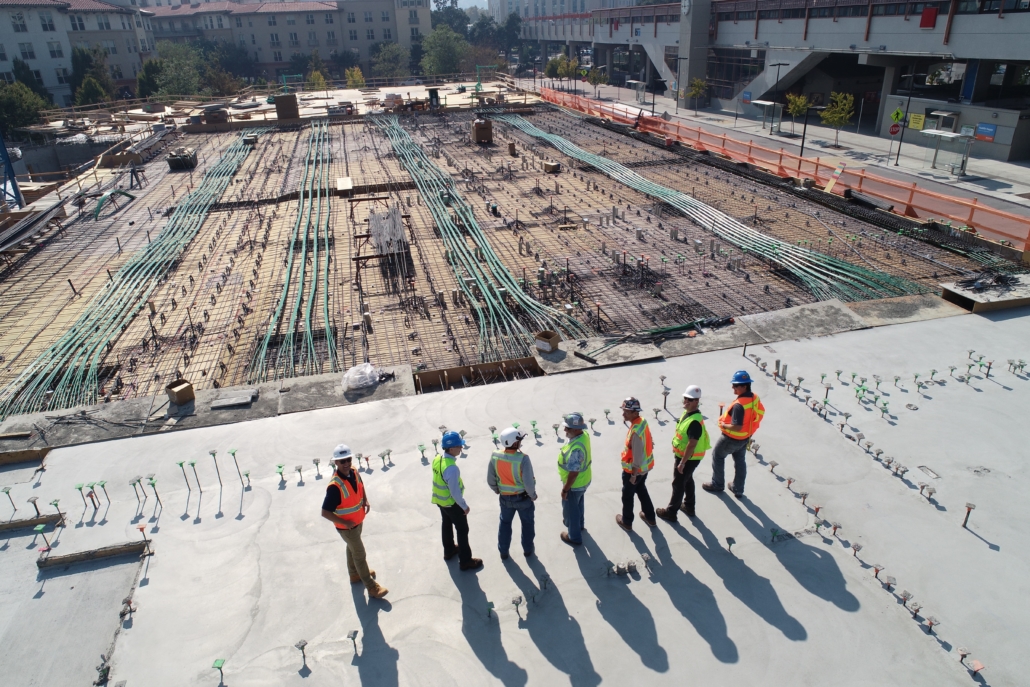Blog | All Posts | All Topics
Construction Bookkeeping 101: Everything You Need to Know

When you’re in the construction industry, bookkeeping was probably the least of your concerns. However, construction bookkeeping is an essential skill if you hope to run a profitable organisation and successfully manage your finances.
In order to help you refine your bookkeeping practices, we’ve created this introductory guide. Below, we’ll outline the key aspects of bookkeeping for construction businesses. We even throw in some proven tips that you can start using right away!
How is Bookkeeping Different for Construction Businesses?
Construction bookkeeping is extremely complex. You have to track each individual project, manage income, and account for operational costs. Since no two projects that you undertake are the same, you must have a proven system for monitoring expenses and revenue.
Strong construction bookkeeping practices are also essential when you want to successfully bid on a project. Your bids have to accurately account for all expenses. If you bid too low, then you could potentially lose money on the project.
Key Concepts for Construction Bookkeeping
In order to optimise your bookkeeping practices, you must first understand the core components of construction accounting. These include:
Project-Driven/Job-Based Accounting
Like most contractors, your business is probably based around individual projects. In order to succeed using this approach, you have to bid rationally and keep costs under control. You must accurately track the cost of each individual job or project. Otherwise, you won’t be able to achieve desired profit margins to sustain your business.
Construction Billing Processes
There are two primary construction billing processes that you can implement. Many companies will use different billing processes for various projects, so it’s a good idea to be familiar with each style.
The first process is known as fixed-price billing. When you’re using this approach, you quote clients a price based on the estimated total cost for a particular project.
The benefit to this method is that you can provide clients with a clear bid upfront. The downside is that any overages come out of your profits!
The second option is known as unit pricing. When you’re using this method, you bill the client an agreed-upon fixed rate for every unit that you complete. If you estimated the per-unit cost accurately, then you can improve your overall revenue.
Managing Varying Income, Expenses, and Other Operational Costs
Our final key concept involves learning to manage varying income and expenses. Throughout the course of a particular project, you have to ensure that your bookkeeping practices are sound. Otherwise, you can overstretch available resources. This can leave you unprepared in the event that you encounter operational costs due to factors beyond your control.
Bookkeeping Tips for Construction Businesses
Now that we’ve outlined the key concepts of bookkeeping for construction businesses, let’s look at a few ways that you can improve your financial tracking practices.
Use an Online Bookkeeping Service/Outsource Your Bookkeeping
One of the best ways to help ensure your financial information is precisely tracked is to outsource the job! With the help of an online bookkeeping provider like Visory, you can gain access to expert accounting and recording services. Our team can provide your organisation with industry-specific reporting and insights that you can use to drive new growth.
At Visory, we take the time to match you with a bookkeeper who will understand the unique demands of your industry. We will ensure they are the right fit for your organisation so that you can get the most out of your bookkeeping services.
Read More: 5 Ways Outsourcing Bookkeeping Can Help Grow Your Business
Track Invoices and Payments When They Are Received
If you want to achieve long-term success with your construction business, then you have to track all invoices and payments when they are received.
Failing to keep up with all of your invoices can result in outstanding debts that get overlooked. This is one of the fastest ways to ruin your profitability and hinder the growth of your organisation.
Use Job Costing to Manage Project Costs
Job costing is an accounting practice that makes it easier to manage project expenses. When you’re using this method, you’ll accumulate the individual costs of overheads, labor, and materials for a specific project.
Job costing is a great tool to track the specific costs of an individual job. You can also analyse this data to find ways to reduce the expenses of jobs you take on down the road.
While job costing can be used in a variety of industries, it is especially beneficial for construction bookkeeping. When you’re taking on a long-term project, job costing can also help you to identify potential overages. This will give you time to make adjustments in order to reduce costs or reach out to the client about a billing increase.
Use Multiple Bank Accounts
If you are currently operating multiple projects from a single account, you could be making a huge mistake. We recommend using multiple bank accounts for your construction company. This allows you to track revenue and expenses more accurately for each project.
When you are managing each job from a separate account, you can avoid common bookkeeping and billing errors.
Choose the Best Revenue Recognition Method for Your Business
Revenue recognition is a principle that outlines the best ways to account for your organisation’s earnings. This principle defines the specific conditions under which revenue should be recognised.
While there are several revenue recognition strategies available, the most popular option for construction bookkeeping is known as the “percentage of completion” method.
Using this method, you must report revenue on what is known as a period-by-period basis. Your expenses, gross profit, and revenue are recognised in each period based on the approximate percentage of work that has been completed.
A period is usually a financial year, but you may decide to count each quarter as a separate period when you’re working on shorter projects.
Construction Bookkeeping from Visory
While the tips above can certainly help you to improve your construction bookkeeping practices, the entire process remains incredibly complex. That is why you should consider partnering with Visory!
We offer comprehensive bookkeeping and accounting services for a variety of industries, including construction companies. Sign up for a free financial health check and a Visory Success Manager will help to analyse your business’ financials and identify potential improvements for your construction business.






